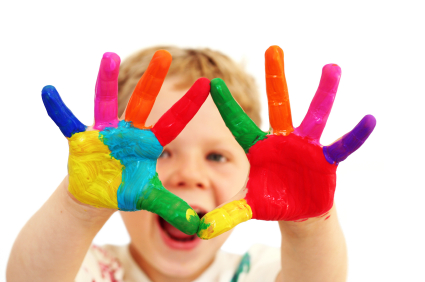(I was listening to this while writing, you may want to listen to this while you read. Or not.... Whatever, I don't care!! Also Check out creatingreciprocity.wordpress.com/, it's pure class like.)
So if you didn't read that post, this post won't make a huge amount of sense but as you have a life that extends outside my blog I'll try to recap with as much brevity as someone with a fondness for their own voice can muster... sorry. Basically I was trying to articulate an issue that relates to difficulties in rapport building between people with ASD and "neuro-typical" people. I attempted to do this by referencing the concept of The Uncanny Valley. This is essentially an expression of how people are uncomfortable interacting with robots that look too human, because we know that they are not human even though they almost perfectly resemble human beings. They still can not replicate the involuntary motions caused by "self talk" and internal processing that real humans learn to recognize in each other, essentially the process of inferring the emotions of another, or of "mind reading" or non verbal empathy. I once again Direct you to the past for the full "discussion" (Jesus, it's hard not to sound like a pompous ass... when you are a pompous ass... This one is very based on oppinion and inference, so I apologise now if anything said is offensive, or seems half cocked. Essentially I'm just trying to order my thoughts.)
I have been thinking a lot about "Wrongness" a lot recently:
If something is "wrong", it is incorrect, it is inappropriate or inefficient, it doesn't work. But also, if something is "wrong" it is often viewed as morally wrong or evil, (not always, I'm really trying to not over generalise here). By way of example, we all know of the story of the student who has been demonised by a teacher for scoring low on exams, or for not understanding a subject or many subjects, hell, go back far enough and children were physically chastised and forced to wear a special hat and sit separately from the rest of the class. Not only were his answers incorrect but he must have been morally wrong for not understanding, he must have been "bad" because "good" children learn well... Then Oswald Berkhan identified Dyslexia, and it took a really really long time but more and more educators started to understand that maybe having trouble at school is has more components then merely binary morality, and almost daily there are excellent examples of how a moralising approach to education and discipline is incorrect, it doesn't fit the situation, it is inappropriate or inefficient, it doesn't work... We are starting to come to grips with this idea, not fast enough, but we're getting there. But I think the reasons why we end up moralising, the reasons why we get angry have a lot to do with the Ideas I spoke about in the previous post, and maybe understanding what influences the emotions around wrongness could help us develop better ways of dealing with them without fueling the fire.
I'd like to present you with an example:
Imagine you are in the jungle, merrily trudging over ground you clearly have a right to trudge over because you are, after all, a human being and this means that one can jolly well roam where one jolly well wishes don'tcherknow. While basking in the "fact" that an all powerful deity, who, coincidentally, happens to look very much like your grandfather, after shaving had become to much of a bore for the old boy, put this jungle here for you to ramble, you are suddenly faced with a very large, very close Tiger. A tiger with a very different set of priorities and opinions on land rights. The rest of this story is very short and probably involves you being transported in handy bite size chunks from the jungle to a much darker and more humid locale and thus the circle of life continues.
Now you have millions of years of experience and evolution impelling you to not enter blindly into a situation in which you may find a man eating tiger, a series of mechanisms in your brain who's purpose is to search out patterns that represent danger and so you are well within your rights to be a little upset that it has failed in it's job. But is the tiger wrong?Assuming it's working well, your brain works in part by generating feelings of fear and discomfort to impel you to not be in a context that may contain a man eating tiger, there has been some really great stuff published about this and I don't need to reiterate all of it here, but basically in order for an animal wired for empathy and exploration to avoid unnecessary risks and there by survive long enough to make adorable little copies of itself there must evolve an internal regulator that makes sure the rank and file to limit the amount of stupid risks we take, and part of this is a fear of that which is unknown so that as we explore, we can do so without taking unnecessary risks.
It's these feelings of discomfort, the intuition that something is not conducive to our survival and propagation that inform our sense of what is right and wrong. To go back to the tiger, this is animal that you can verbally reason with, it will not empathise with your sorrow and fear, motivating it to not eat you. As I spoke about in the last post, people much smarter have used a lot of words to point out, that the vast majority of people love to anthropomorphise things that are not human, to apply words like evil to animals, because they can and will kill us without a second thought... Until we begun to understand that they are just simply animals responding to programing. Not evil, just behaving in the best way they can to get their needs met. People learned that if they enter the habitats of animals , being aware enough to not metaphorically tick the "food or threat" box in the animals brains then relationships of merit could be built. In other words, they move past "The Uncanny" and to override the discomfort and learn how to build rapport with the animal in question, a living brain with a different approach to empathy. What would happen if as a society we were to learn to override the discomfort presented by those with physical, mental or social disabilities, to turn off the moral filter?
The moral rightness or wrongness of maladaptive behavior is, for the most part, the lens through which society views issues like educational discipline and psychological treatment but this is itself maladaptive behavior informed by emotions produced by organs that were originally designed to keep monkeys safe. We're no longer monkeys, so maybe we should try to change the way we use this systems. Maybe using it in a way that leads medical professionals to speak only in terms of morbidities and not the people who are suffering, that leads a society to medicate and sedate people instead of trying to help them to live with dignity. To put this little boy in the corner instead of helping him do this...

Now as I said above there is literally millions of years of evolution and habit behind this response, but maybe if we can change it now, and I know first hand people who have done it, if we can learn to see a context that is broader than immediate discomfort, to redefine what empathy and rapport actually means I think that could lead to a very different image of a human being living with dignity, one that includes more people.
"People fear what they do not understand and hate that which they can not conquer."
-Andrew Smith-
"But do we have to?"
-The Thinking Troll-
.... Not strong
(PS. This took a really long time to write, this was the other really good mix that I came across)







